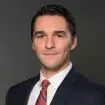In Re ProAssurance Corp. Stockholder Derivative
Litig., Consol. C.A. No. 2022-0034-LWW (Del. Ch.
Oct. 2, 2023)
Claims against corporate fiduciaries for breaches of the duty of
oversight are colloquially referred to as
"Caremark" claims. This decision exemplifies why
Caremark claims are among the most difficult to prosecute
and "should be reserved for extreme events."
In 2015, the board of ProAssurance, a healthcare professional liability insurance provider, decided to insure a larger healthcare institution than the company typically insured. Despite the board's efforts to monitor risks, the liabilities exceeded the company's reserves, and the company ultimately took a $51.5 million dollar hit. This litigation followed. The defendants moved to dismiss and the question of demand excusal turned on, among other things, the strength of the plaintiffs' Caremark claims.
The Court of Chancery granted Defendants' motion. Caremark claims usually arise from one of two theories: the failure to implement adequate controls; or the refusal to heed red flags. As the Court explained, for liability to arise, oversight failures must be "so egregious that they amount to bad faith." The plaintiffs initially based their Caremark claim on a lack of adequate controls, but the Court quickly dismissed this theory. The allegations established that the board engaged auditors and advisors, and actively managed and monitored the company's underwriting practices and reserves. The plaintiffs shifted to a theory that the directors either knew of violations of positive law or consciously failed to act after learning about evidence of illegality. The Court quickly disposed of this argument as well. The plaintiffs' allegations failed to establish that the company was engaged in illegal activity, as opposed to taking on business risk as a matter of business judgment. The Court also reasoned that, even if the failure to monitor business risk could give rise to oversight liability, the complaint's allegations would need to support a reasonable inference of bad faith, such as through a "sustained or systematic" failure of oversight. The allegations supported no such inference here.
The content of this article is intended to provide a general guide to the subject matter. Specialist advice should be sought about your specific circumstances.



